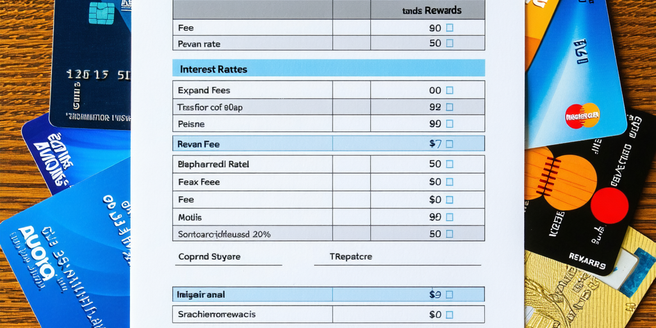
Understanding Retail Credit Card Benefits
Retail credit cards offer a range of benefits that can enhance your shopping experience. Often tied to specific stores or chains, these cards can provide perks like discounts, exclusive offers, and rewards points for each purchase made. Understanding these benefits is crucial to make the most of them. For instance, some cards offer cashback or store credits, which can result in significant savings over time. Additionally, cardholders may receive special financing options or early access to sales events. However, it is vital to assess the terms and conditions, as some of these benefits might come with spending requirements or annual fees. By carefully evaluating the pros and cons, consumers can decide whether a retail credit card aligns with their shopping habits and financial goals.
How to Choose the Right Retail Credit Card
Selecting the ideal retail credit card requires careful consideration of several factors. First, examine your shopping habits to determine which stores you frequent the most. Cards tied to those retailers can maximize your rewards potential. Next, compare the benefits offered by different cards, such as discounts, rewards points, and special financing. It is also essential to understand the card’s interest rates and fees, as these can impact the overall value of the card. Additionally, consider any introductory offers or bonuses that may be available when signing up. By comparing these features, you can find a card that not only aligns with your spending habits but also provides a balance of perks and manageable terms, ensuring you get the most value.
Comparing Interest Rates and Fees
When considering a retail credit card, it’s crucial to compare interest rates and fees, as these can vary significantly between cards. The Annual Percentage Rate (APR) is a critical factor, as a higher rate can lead to more interest accrued on unpaid balances. Some cards offer a low introductory rate, but it’s important to check how long it lasts and what the rate jumps to afterward. Additionally, be aware of potential fees such as annual fees, late payment fees, and over-limit fees. These charges can quickly add up, negating any rewards or discounts you may receive. By thoroughly reviewing these costs, you can select a card that offers beneficial terms and minimizes extra expenses, allowing you to reap the benefits without incurring unnecessary financial burdens.
Maximizing Rewards and Discounts
To make the most of your retail credit card, focus on maximizing the rewards and discounts available. Start by using your card for purchases that offer the highest rewards or discounts, as this can enhance your savings and earn you points more quickly. Keep an eye out for promotional periods or rewards multipliers, where spending in certain categories can lead to boosted benefits. Joining the retailer’s loyalty program can also complement your credit card rewards, offering even more discounts and specials exclusively for members. However, ensure you pay off your balance in full each month to avoid interest charges that could offset the rewards you earn. By strategically utilizing your card, you can amplify your savings and take full advantage of the incentives provided.
Tips for Managing Your Retail Credit Card
Managing a retail credit card effectively involves keeping track of spending and making timely payments. Start by setting a budget for your card usage, ensuring that you only charge what you can afford to pay off monthly. This prevents the accumulation of debt and avoids interest charges. Regularly review your statements to monitor spending patterns and catch any unauthorized charges promptly. Additionally, consider setting up automated payments to ensure bills are paid on time and avoid late fees. Keeping your credit utilization low, ideally below 30% of your credit limit, can also positively impact your credit score. By practicing these habits, you maintain control over your credit card usage, avoid costly interest payments, and keep your financial health intact.
